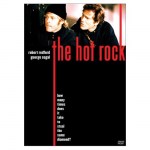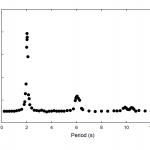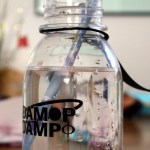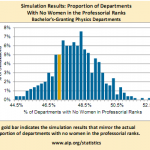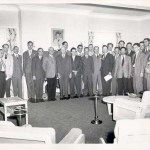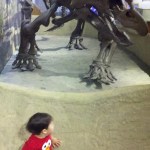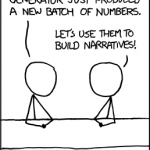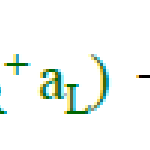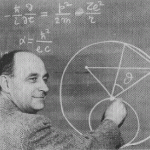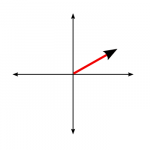
I have a small collection of recent research papers that I'd like to write up open in various browser tabs and suchlike, but many of these would benefit from having some relatively clear and compact explanations of the underlying techniques. And while I can either dig up some old posts, or Google somebody else's, it's been a while since I wrote some simple, straightforward explanations of physics techniques, so I thought it'd be fun to write up some new explanations for use in future posts. Thus, this introduction to a series of techniques commonly used in my corner of Atomic, Molecular, and…
Over at Galileo's Pendulum, Matthew Francis expresses an opinion that's sure to get him in trouble with the Inquisition and placed under house arrest: Carl Sagan's Cosmos isn't all that:
However, even taking into account the differences in TV between 1980 and 2013, the show is very slow-paced at times. I’m not talking about the mellow oh-so-1970s Vangelis score, or Sagan’s measured style of speech: I mean the obvious stretching of material to make hour-long episodes. I have a long attention span, so I’m not saying Cosmos should be like the frenetic Star Trek reboot; I’m just saying that a…
A lot of heavy blogging this week, so here's a cute kid picture (as the featured image; click through if you're reading via RSS). This is SteelyKid and The Pip at play this morning, when they were back and forth across the yard a dozen times to pick up rocks from our gravel path and throw them into the pond (just behind them in this picture). They're such sad and solemn children.
SteelyKid seems to only get more social as time apsses-- at soccer this morning, her coach asked rhetorically why they stretch before playing, and got a five-minute spiel about getting hurt and being safe and this…
Some time back, I spent a bunch of time writing a VPython program that simulated the motion of a pendulum, which turned out to do some strange things. In the comments to that, there were two things worth mentioning: first and foremost, Arnoques at #5 spotted a small error in the code that fixes the odd behavior noted in that post-- when I corrected it, the stretch needed to keep the pendulum swinging smoothly without oscillating in and out along the string was exactly what you would expect (the "factor" plotted in that earlier post is infinitesimally smaller than 1.0-- I got bored trying to…
The other day, I made a suggestion to one of my research students of an experiment to try. When I checked back a day later, she told me it hadn't worked, and I immediately realized that what I had told her to do was very stupid. As penance, then, I'll explain the underlying physics, which coincidentally has a nice summer-y sort of application alluded to in the post title.
If you're the sort of person who enjoys swimming, and can either open your eyes underwater or regularly wear a mask or goggles, you've probably notice that the underside of the surface of a swimming pool or other body of…
I've spent a bunch of time recently blogging about baseball statistics, which you might be inclined to write off as some quirk of a sports-obsessed scientist. I was very amused, therefore, to see Inside Higher Ed and ZapperZ writing about a new AIP report on women in physics (PDF) that uses essentially the same sort of rudimentary statistical analysis to address an important question.
I say "amused" because of the coincidence in methods, not because of the content. And, in fact, the content is... not likely to make them friends in a certain quarter of the blogosphere. I actually flinched when…
I'm doing edits on the QED chapter of the book-in-progress today, and I'm struck again by the apparent randomness of the way credit gets attached to things. QED is a rich source of examples of this, but two in particular stand out, one experimental and the other theoretical.
On the experimental side, it's interesting to note that one of the two experimental effects that really galvanized the theoretical effort leading to QED bears the name of a particular person, while the other does not. Ask any physicist about the origin of QED, and they will almost certainly be able to cite the "Lamb shift…
I'm starting to think that maybe I need to add "Work-life Balance" to the tagline of this blog, given all the recent posting about such things (but then, one of the benefits of having done this blogging thing for eleven years is that I know this is just a phase, and I'll drift on to the next obsession soon). Anyway, the genre of work-life blogging generally just picked up a new must-read post from Radhika Nagpal at Scientific American: The-Awesomest-7-Year-Postdoc or: How I Learned to Stop Worrying and Love the Tenure-track-faculty-life:
I’ve enjoyed my seven years as junior faculty…
After Thursday's post about sports and statistics, a friend from my Williams days, Dave Ryan, raised an objection on Facebook:
There's an unstated assumption (I think) in your analysis: that there is some intrinsic and UNALTERABLE statistical probability of getting a hit inherent in every hitter. If that is the case, then yes -- a hitter whose mean is .274 that hits .330 in the first half should, reasonably, be expected to regress towards the "true" outcome of .274 in the second half; and if the hitter winds up batting .330, it's a statistical outlier. But that ONLY applies if the underlying…
The kids and conferences issue, discussed here a while ago has continued to spark discussion, with a Tenure She Wrote piece on how to increase gender diversity among conference speakers and a Physics Focus blog post on a mother who wound up taking her toddler to a meeting. There are some good points in both, though the Tenure She Wrote poster seems to be in a field whose conferences run on a different model than that used for most meetings I go to.
The Physics Focus post was particularly interesting to me, though, because I spent last weekend as the portable conference day-care while Kate…
One of the chapters of the book-in-progress, as mentioned previously, takes the widespread use of statistics in sports as a starting point, noting that a lot of the techniques stat geeks use in sports are similar to those scientists use to share and evaluate data. The claim is that anyone who can have a halfway sensible argument about the relative merits of on-base-percentage and slugging percentage has the mental tools they need to understand some basic scientific data analysis.
I'm generally happy with the argument (if not the text-- it's still an early draft, and first drafts always suck…
It's been a really long time since I've done a Dorky Poll here, but I'm pretty fried at the moment, so here's a kind of mathematical personality test: two numbers that do not uniquely define a sequence, but suggest some possibilities that reveal your innate character type and/or appropriate career path:
Personality Test: What number should come next in this sequence: 101, 1001,...?
Feel free to offer arguments for your chosen answer in the comments, and/or to speculate about what the hidden meanings of the options are. I'll explain the logic some other time.
(This might be too abstract for a…
I forget who pointed me to the Tenure She Wrote piece on mentoring, but it's something I've been turning over for a couple of weeks now. Probably because I became aware of it right around the time my two summer students started work last week. It keeps colliding with other conversations as well, though, so I may as well get a thinking-out-loud post out of the whole thing.
I told my summer students even before they started, back when they were just writing proposals to do summer research with me, that I'm going to be very hands-off with the whole business. This is at least partly a matter of…
One thing I left out of the making-of story about the squeezed state BEC paper last week happened a while after publication-- a few months to a year later. I don't quite recall when it was-- I vaguely think I was still at Yale, but I could be misremembering. It's kind of amusing, in an exceedingly geeky way, so I'll share it, though it's also a story of an embarrassing mis-step on my part.
So, the physical situation we were studying is described by the "Bose-Hubbard Hamiltonian": Bose because it's dealing with bosons (there's also a Fermi-Hubbard version, I believe); Hubbard after [mumble]…
I spend a lot of time promoting Rhett Allain's Dot Physics blog, enough that some people probably wonder if I get a cut of his royalties (I don't). I'm going to take issue with his latest, though, because he's decided to revive his quixotic campaign against photons, or at least teaching about photons early in the physics curriculum. We went through this back in 2008 and 2009 (though Rhett's old posts are linkrotted away, so you only get my side of the story...). I'm no more convinced this time around, even though he drags in Willis Lamb and David Norwood for support.
There are basically two…
Yesterday's write-up of my Science paper ended with a vague promise to deal some inside information about the experiment. So, here are some anecdotes that you would need to have been at Yale in 1999-2000 to pick up. We'll stick with the Q&A format for this, because why not?
Why don't we start with some background? How did you get involved in this project, anyway? I finished my Ph.D. work at NIST in early 1999, graduating at the end of May. I needed something to do after that, so I started looking for a post-doc by the don't-try-this-at-home method of emailing a half-dozen people I knew…
In Monday's post on squeezed states, I mentioned that I really liked the question because I had done work on the subject. This is, in fact, my claim to scientific fame (well, before the talking-to-the-dog thing, anyway)-- I'm the first author on a Science paper with more than 500 citations having to do with squeezed states. And since I've never written it up on the blog before, I'll leap on this opportunity to do some shameless self-promotion...
Well, aren't we Mr. Ego today? What's this paper that you're so impressed with about? I've never been all that good with titles, but I like to think…
There was a flurry of discussion recently on campus about "critical thinking," and how we sell that idea to prospective and current students. This was prompted by a recent report arguing for the importance of the humanities and social sciences (which I found really frustrating in ways that are neither surprising nor important for this post). This eventually led to a meeting on Monday this week to discuss this sort of thing, in the course of which one of our Deans mentioned an abandoned project to collect statements about the modes of thinking associated with particular disciplines, which I…
In the Physics Blogging Request Thread the other day, I got a comment so good I could've planted it myself, from Rachel who asks:
It’s a term I see used a lot but don’t really know what it means – what is a “squeezed state”? What does “squeezing” mean? (in a QM context of course…)
I love this, not only because it gives me an excuse to talk about cool physics, but because it will let me engage in blatant self-promotion-- I have a Science paper on squeezed states, which I've never actually written up for the blog. So this post will be a great way to set up a future post, ResearchBlogging that…
There was another round of the "who counts as a scientist?" debate recently, on Twitter and then on the Physics Focus blog. In between those, probably coincidentally (he doesn't mention anything prompting it), Sean Carroll offered a three-step definition of science:
Think of every possible way the world could be. Label each way an "hypothesis."
Look at how the world actually is. Call what you see "data" (or "evidence").
Where possible, choose the hypothesis that provides the best fit to the data.
This isn't quite the way I would put it-- I'm an experimentalist where Sean's a theorist, so I…

